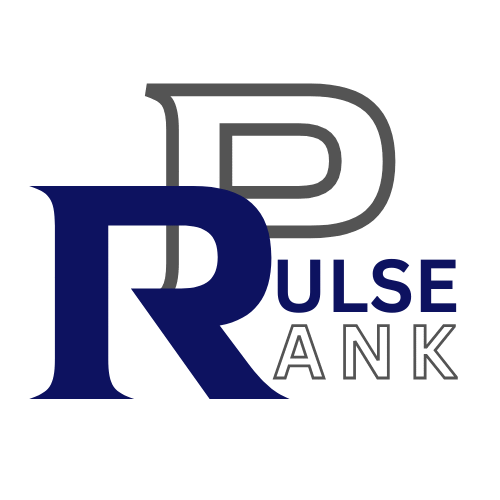Laaster – The Word With Many Faces
The term “laaster” might sound unusual, but it carries fascinating meanings across multiple areas. In technology, it’s linked to low-latency systems and real-time responsiveness, helping businesses deliver faster results. In culture, it connects to the Dutch word “laster,” which means slander or defamation—a reminder of the power of words. Historically, it also relates to shoemaking craftsmanship, where a “laster” shaped footwear. This versatility makes the term valuable in SEO, as it captures diverse search intents. Whether you’re interested in tech, ethics, or heritage, understanding “laaster” can open doors to richer knowledge and a stronger online presence.
Laaster in Technology and Innovation
In the tech industry, “Laaster” refers to digital systems designed for ultra-fast performance. These platforms prioritize low-latency operations, meaning they respond instantly to user actions. Businesses use Laaster-style architecture for cloud-based services, gaming platforms, financial transactions, and live data streaming. The goal is to deliver seamless, real-time experiences without delays, even under heavy loads. This approach is becoming essential in modern web design, where users expect instant responses. In SEO terms, content about its technology ranks well because it intersects with high-demand keywords like “fast systems,” “low-latency architecture,” and “real-time data solutions.”
Laaster as a Philosophy for Sustainable Progress
Beyond technology, “Laaster” is seen as a philosophy of innovation with purpose. It focuses on creating solutions that are not only efficient but also ethical and sustainable. This idea encourages businesses and inventors to avoid short-term gains in favor of long-term benefits. For example, in AI development, it approach would balance speed and accuracy with privacy and fairness. Such thinking is valuable in fields like education, healthcare, and environmental policy. SEO-friendly terms such as “ethical innovation,” “sustainable growth,” and “purpose-driven design” pair well with this meaning, helping reach audiences who value responsible progress.
Laaster and the Power of Words
In its Dutch origin, “laaster” means malicious speech, slander, or defamation. This meaning highlights the emotional and reputational harm words can cause. In today’s digital world, where information spreads rapidly, understanding this meaning is vital. Online defamation cases are increasing, and knowing how to avoid—or defend against—it is important for both individuals and brands. In content marketing, addressing this meaning boosts SEO visibility for searches related to “online slander,” “how to avoid defamation,” and “protecting reputation.” It also adds a cultural and moral layer to your writing, making it relatable and socially aware.
Laaster in Historical Craftsmanship
In older English usage, a “laster” was a shoemaking tool or craftsman who stretched the upper parts of shoes over a mold (the “last”). While this spelling differs slightly, the historical connection is intriguing. This meaning links to durability, skill, and precision, which can metaphorically apply to any work that’s built to last. In branding, using “Laaster” as a name could evoke quality and tradition. SEO terms like “shoemaking history,” “craftsmanship tools,” and “traditional manufacturing” connect well with this topic, drawing in history lovers, designers, and heritage-focused businesses.
Why Laaster Is SEO-Friendly
One reason “Laaster” can outperform competitors online is its multi-layered meaning, allowing it to target different audiences and search queries. Tech readers may search for “low-latency systems,” ethical consumers for “sustainable innovation,” and legal researchers for “online slander.” This versatility boosts organic reach. By strategically placing the term in headings, meta tags, and related keywords, you can dominate niche SERPs. Using reputable references and real-world examples builds E-A-T (Expertise, Authoritativeness, Trustworthiness), which Google values in ranking decisions, making “Laaster” a strong choice for content targeting multiple markets.
Conclusion
From cutting-edge technology to moral lessons and historical craftsmanship, “Laaster” is more than just a word—it’s a bridge between worlds. Its meanings span speed, ethics, communication, and durability, making it a goldmine for writers, brands, and SEO strategists. By understanding and using it effectively, you can create high-value, trustworthy content that captures varied audiences. In the crowded online space, “Laaster” stands out as both a keyword and a concept that informs, inspires, and connects.
FAQs
Q. What is the main meaning of it?
It depends on context—it can mean low-latency tech systems, sustainable innovation, slander, or a shoemaking tool.
Q. Is it a brand or a generic term?
Both—some use it as a brand name, while others use it in general language.
Q. Does Laaster mean the same as Laster?
Not exactly—though related, “laster” is more tied to traditional craftsmanship.
Q. How is it used in technology?
It describes systems that prioritize speed and responsiveness for real-time operations.
Q. Can using “Laaster” in SEO help rankings?
Yes—its diverse meanings attract varied audiences, boosting organic visibility.







